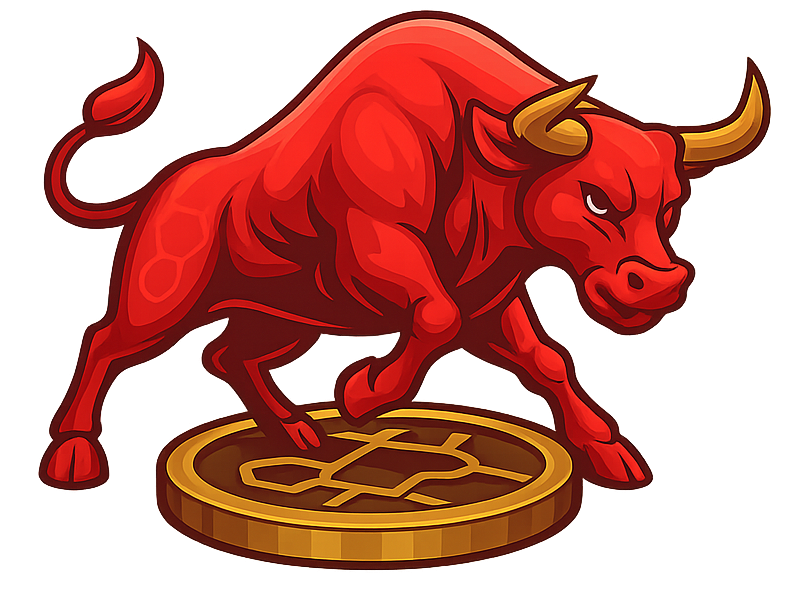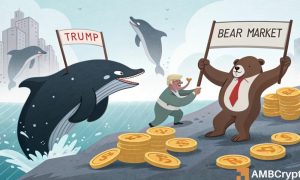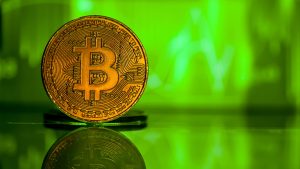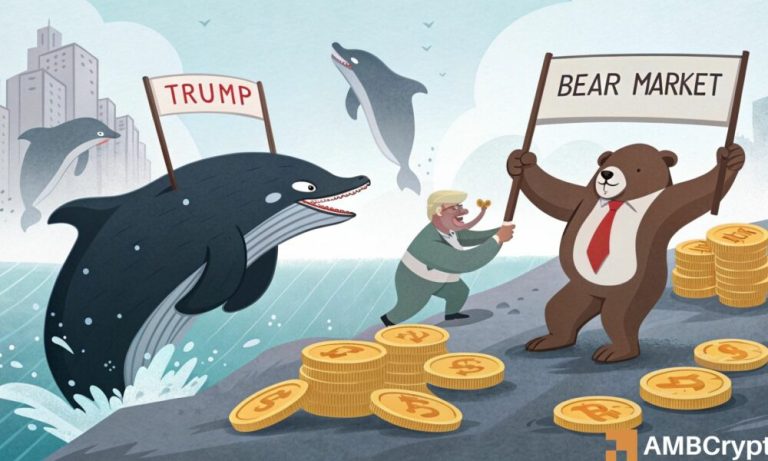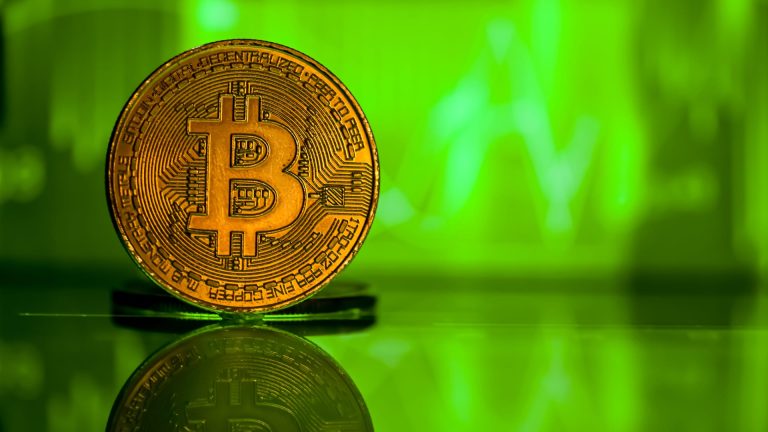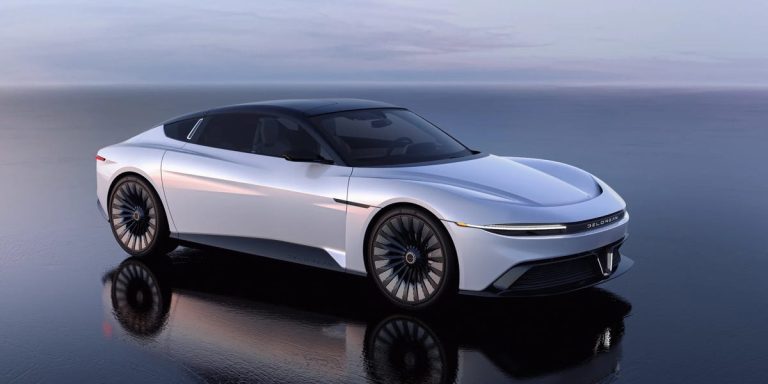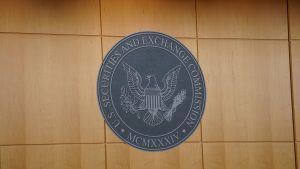President Trump received plenty of attention this month when he happily accepted a $400m Boeing 747 from the Persian Gulf emirate of Qatar.
“Only a FOOL would not accept this gift on behalf of our country,” Trump posted on social media.
But Trump and his golf buddy turned special negotiator Steve Witkoff landed a much bigger gift this month, likely to enrich them far more: a $2bn investment in their new cryptocurrency venture from the emirate of Abu Dhabi.
The investment by a firm controlled by Abu Dhabi’s sovereign wealth fund will go to World Liberty Financial, a cryptocurrency firm whose biggest beneficiaries are the Trump and Witkoff families.
Thanks to Abu Dhabi’s purchase of their “stablecoin”, the Trumps and Witkoffs will collect hefty fees and could reap hundreds of millions of dollars in interest payments.
The deal isn’t as headline-grabbing as Qatar’s plane, but it’s a lot more valuable. It was the biggest single purchase of World Liberty’s cryptocoins yet – an immense injection of revenue into Trump’s most lucrative personal money-making scheme.
None of this is normal. Presidents don’t usually maintain private businesses that sell investment vehicles to foreign leaders who seek favor with the United States. Nor do they appoint their private business partners as diplomatic envoys to negotiate with the same leaders over war and peace.
But Trump and Witkoff have found a vastly rewarding way to straddle the line between public service and private profit.
Abu Dhabi is the wealthiest and most powerful member of the United Arab Emirates, an oil-rich federation of seven Persian Gulf emirates. After Abu Dhabi invested $2bn in the Trump-Witkoff stablecoin, Trump agreed to allow the UAE to buy more advanced AI semiconductors from American companies. “It’s a very big contract,” the president observed.
In 2023, the Biden administration sharply restricted exports of advanced chips to the UAE because of fears that some of the technology could leak to China, which has deep economic ties with the emirates.
‘I learned the business from him’
Witkoff and Trump first met in the 1980s, when Witkoff was a lawyer working on one of Trump’s Manhattan real-estate deals. Witkoff says he adopted Trump as a role model; “I learned the business from him,” he told Tucker Carlson in March. Over time, the two dealmakers became golf buddies, friends and business partners. After Trump lost the White House in 2020, Witkoff became one of his staunchest defenders, and testified as a character witness at Trump’s 2024 New York trial on business fraud charges.
It was Witkoff who first alerted Trump to the opportunity to take over a fledgling cryptocurrency firm that their respective sons had discovered, World Liberty Financial.
The two families negotiated equity interests in the venture, which now showcases Trump on its website as its “chief cryptocurrency advocate”. Witkoff is listed as a “co-founder”. A heroic photograph of Trump dominates the website.
A Trump family subsidiary owns 60% of World Liberty and is entitled to 75% of net income from its coin sales, according to the website. A Witkoff family firm is entitled to 12.5%. The firm says it sold more than $550m in cryptocurrency “tokens” in its first five months of operation, generating undisclosed amounts of fees and profits for the Trump and Witkoff families. Most of the sales occurred after Trump’s election.
Before Trump’s inauguration, when he was the president-elect’s personal envoy for Gaza, Witkoff promoted World Liberty at a crypto investors’ conference in Dubai. The meeting’s organizers billed him as both a co-founder of World Liberty and the incoming president’s key man for the Middle East.
During the same period, Witkoff met – in his diplomatic role – Saudi Arabia’s Mohammed bin Salman, the UAE’s Mohamed bin Zayed, and Qatar’s Tamim bin Hamad, all of whom command enormous sovereign wealth funds.
After Trump’s inauguration, Witkoff helped broker Qatar’s offer to donate a spare 747 to the president, according to the New York Times.
Witkoff came equipped with plenty of experience doing business in the Gulf. He knew the heads of several sovereign wealth funds from earlier real-estate deals.
A UAE-controlled fund invested in his purchase of New York’s Park Lane hotel in 2013; in 2016, the Qatari fund took the troubled property off their hands.
When Russia’s Vladimir Putin sent a special envoy to Washington to talk with Witkoff about Ukraine, his emissary wasn’t a diplomat; it was Kirill Dmitriev, the head of Russia’s sovereign wealth fund.
Once Witkoff landed his government post as Trump’s all-purpose peace negotiator, he appears to have stepped back from active involvement in World Liberty.
A Witkoff spokesman at the state department, Edgar Vasquez, said the envoy “does not discuss WLF [World Liberty Financial] or any other personal business while conducting his official duties”.
His son Zach Witkoff has acted as the firm’s chief overseas salesman instead.
The fact that Zach’s father is one of Trump’s closest confidants appears to have helped open doors. When Zach Witkoff visited Pakistan last month, he met the country’s powerful army chief and its prime minister, an unusual level of access for an obscure cryptocurrency firm. The prime minister’s office noted in a news release on the meeting that Zach is “the son of Steve Witkoff”.
A White House that is ‘open for business’
No modern precedent exists for a US diplomatic envoy so deeply tangled in a president’s private business interests.
“I can’t think of any parallel,” said Robert Dallek, a retired UCLA historian who has written biographies of Franklin D Roosevelt, John F Kennedy and Lyndon B Johnson.
Presidents have sent special envoys abroad since the early days of the republic. George Washington sent Gouverneur Morris, a delegate to the constitutional convention, to London in 1789 to negotiate peace with Britain. Roosevelt sent investment banker Averell Harriman to Moscow in 1941 to talk with Stalin. But historians say they can’t think of any instance in which a special envoy was also the president’s partner in a private moneymaking venture.
In more recent history, then secretary of state Hillary Clinton came under fire after foreign donors made big donations to the private Clinton Foundation, prompting allegations the family was mixing public and private interests.
Trump and other Republicans denounced that arrangement as unethical.
“It’s a criminal enterprise – Saudi Arabia giving $25m, Qatar,” Trump said in 2016. “These are people that kill women and treat women horribly. And yet you take their money.”
“My goal is to keep foreign money out of American politics,” Trump said.
This time it’s Democratic senators who are raising alarms.
“The White House is open for business, and the Trump family is proudly advertising to the world where to send the check,” Chris Murphy of Connecticut told the Guardian.
“The Trumps and the Witkoffs are in business together making money off their government positions,” he said. “It’s just plain as day.”
Murphy charged that the administration’s announcement that it plans to relax restrictions on semiconductor exports to the UAE, a change the emirates have long sought, is a “quid pro quo” for Abu Dhabi’s investment in the Trump-Witkoff crypto venture.
“You wouldn’t be investing in Trump stablecoin unless you want something from him,” Murphy said. “It’s all about getting access to Trump and ultimately getting favorable policy from the United States.”
Murphy and other Democrats also charge that once the emirates have those chips, it will be difficult for the United States to prevent some of them from reaching China, which also has close ties to the emirates.
“China will be right there waiting to get their hands on that technology,” he warned.
after newsletter promotion
‘No conflicts of interest’
To ethics officials from previous administrations, the Trump and Witkoff stakes in World Liberty raise red flags.
By reaping income from the firm’s crypto sales, both Trump and Witkoff appear to be violating the US constitution’s emoluments clause, which prohibits federal officers from accepting payments from foreign governments, they said.
“If Witkoff owns an interest in World Liberty and there is a UAE-controlled fund investment in World Liberty, that is likely a violation of the emoluments clause,” Richard W Painter, the top White House ethics official during the George W Bush administration, said in an email message. “His intentions don’t matter.”
Witkoff is also subject to administrative regulations enforced by the office of government ethics, Painter and other former officials noted.
“An employee may not use their public office for their own private gain, for the endorsement of any product, service, or enterprise … or for the private gain of friends, relatives, or persons with whom the employee is affiliated,” the OGE rules state.
The regulations also admonish employees to “ensure that the performance of their official duties does not give rise to an appearance of use of public office for private gain”.
Witkoff says he has begun the paperwork to divest his interest in World Liberty by transferring his interest to his adult sons.
But that move, which he hasn’t completed, may not insulate him fully from the ethics laws. He has already collected substantial gains from his equity in World Liberty. And even after a divestment, if his sons profit thanks to his diplomatic post, that would appear to be a violation of the OGE regulations.
Trump is exempt from all conflict of interest regulations, because Congress decided long ago that restricting a president’s authority because of his financial interests would be both impractical and a constitutional overstretch.
The White House says Trump and Witkoff have done nothing wrong.
“Despite dishonest claims from Democrats, there are no conflicts of interest,” deputy press secretary Anna Kelly said in a written statement.
“Special Envoy Steve Witkoff is divesting from all of his assets, including WLF, and has no operational role in the company. These types of baseless accusations only serve to distract from all his incredible work in service to the country.”
The same goes for Trump, she said.
“The president’s assets are in a trust managed by his children” – a back-handed acknowledgement that Trump, unlike many of his recent predecessors, has neither divested nor placed his assets in a blind trust. “There are no conflicts of interest,” she repeated.
But “no conflicts of interest” doesn’t square with the facts. World Liberty is openly using its association with the president to generate profit for the Trump and Witkoff families.
Senator Murphy dismissed the White House’s defense as “absurd on its face”.
“Everybody can see what’s going on,” he said.
As for Witkoff’s day job – negotiating peace in Gaza, ending the war in Ukraine, and cutting a deal with Iran – it doesn’t appear to be going especially well.
In Gaza, Witkoff helped to close Biden’s ceasefire deal in January by making the point that Trump wanted it, and by making sure Netanyahu got – briefly – on board. But he’s failed at several attempts to extend or renew the ceasefire. He won freedom for one Israeli-American hostage by going around Netanyahu, but not the 20 Israeli hostages who are still believed alive; he’s trying to negotiate another temporary ceasefire that would free about half of the captives. He and Trump appear to have misjudged how stubborn Netanyahu would be in his desire to continue the war.
In Ukraine, Witkoff tried to win Putin’s confidence by pre-emptively endorsing some of Russia’s main demands, including its claim to five Ukrainian regions including Crimea. That hasn’t been enough; Putin still appears intent on pursuing his goal of controlling all of Ukraine. In a two-hour telephone call on 19 May, Trump tried to jawbone Putin into embracing a ceasefire, but the Russian leader merely agreed to hold more talks – during which he intends to continue the war.
On Iran, Witkoff initially stumbled by publicly softening US policy, saying Iran could maintain a uranium enrichment program as long as it didn’t move toward weapons capability. After a storm of protest from US hardliners, he backed off and returned to the demand that Iran dismantle its entire enrichment program. Trump has given the US-Iranian negotiations a deadline of mid-June, but that’s unlikely to be enough to reach a result. Then secretary of state John Kerry needed 20 months to negotiate the 2015 agreement that Trump scrapped, and that was after years of preparatory work.
‘He knows nothing’
What’s gone wrong? The answer from many foreign policy professionals is that Witkoff, a real-estate developer with no previous diplomatic experience, is in over his head.
“He knows nothing about Russia, he knows nothing about Ukraine, he knows nothing about Iran, he knows nothing about nuclear weapons,” said John Bolton, who served as national security adviser for 18 months during Trump’s first term. “What could go wrong?”
Witkoff readily acknowledges that he was naive when he started.
“Of course I didn’t understand the dimensions of it,” he said of the Gaza conflict. “Now I do.”
Witkoff says he’s fully devoted to his peacemaking mission and considers it more important than anything he accomplished in his real estate career. “The work is so worthy,” he told the Atlantic.
Trump has long derided US diplomats as lousy negotiators and extolled entrepreneurs as master dealmakers.
This month, at a belated swearing-in ceremony for Witkoff, Trump awarded his friend the highest compliment in his business-world lexicon: “He’s a killer.”
Witkoff told the Atlantic that he’s been boning up on traditional diplomacy by reading books and watching Netflix documentaries. “I watched a ton of stuff on Henry Kissinger,” he said.
But Kissinger never tried to negotiate three complex deals at the same time. Kissinger’s negotiations to withdraw US troops from Vietnam lasted more than three years. His talks to reopen US relations with China took more than a year. His disengagement agreements between Israel and Egypt took about 20 months.
Witkoff has been on the job for only four months – six if you count his time as Trump’s pre-inaugural Gaza envoy. And he’s working for a president whose foreign policy decisions often appear erratic.
So landing the Nobel peace prize, as Kissinger did, is likely to be a tall order. But Trump and Witkoff will have at least one consolation: By the end of Trump’s term, their families will be a lot richer.
